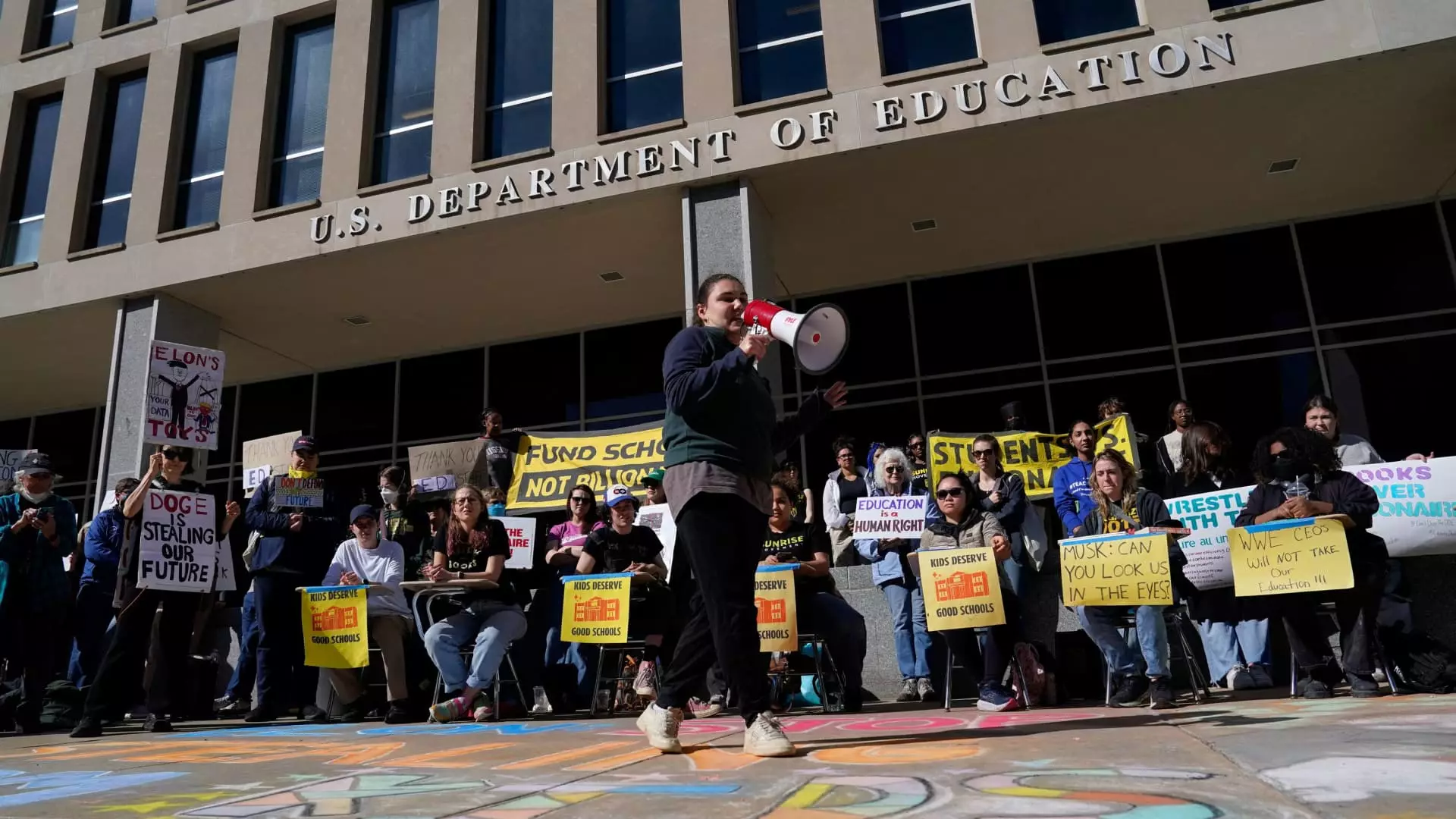In an alarming display of governance, the Trump administration is challenging a court ruling aimed at reinstating over 1,300 terminated employees from the U.S. Department of Education. This move not only undermines the integrity of a vital institution but reveals a troubling agenda to dismantle core protections that safeguard the educational rights of millions of American students. The administration’s defense, spearheaded by Solicitor General D. John Sauer, posits that the layoffs are necessary to streamline operations. However, this logic is superficially appealing at best and grossly misrepresentative of the harmful consequences it brings forth.
The Boston court’s ruling echoes a larger, more disconcerting reality—mass staff reductions have led to the closure of critical civil rights offices. With seven of twelve such offices shuttered, the ability to protect students from discrimination on grounds of race, disability, and other forms of biased treatment hangs by a thread. To attempt to equate efficiency with the obliteration of civil rights enforcement is not just a bureaucratic mistake; it is a moral failure. The implications are stark: marginalized groups, already facing systemic hurdles in education, are left increasingly vulnerable in a system that should shield them.
The Flawed Justification: ‘States Can Handle It’
The administration’s assertion that functions should be left to states is not just naive; it borders on irresponsibility. This line of reasoning reflects a fundamental misunderstanding of both the role of federal oversight and the disparate capabilities of state systems. While some states may rise to meet educational needs, many lack the resources or political will to effectively carry out these responsibilities. The patchwork nature of state governance can lead to severe inequalities, leaving vulnerable populations behind.
By minimizing the federal government’s role in education, the Trump administration not only stands against decades of progress but also reinforces a status quo that favors the wealthy and disenfranchises the less fortunate. The implication of their strategy suggests that educational equity is an expendable ideal, easily brushed aside for what they term “efficiency.”
A Defiance of Historical Context
This attempt to dismantle the Department of Education is not a new phenomenon; rather, it’s a continuation of historical threats facing the agency since its founding by President Jimmy Carter in 1979. Over the decades, champions of education have defended against calls to abolish or merge the department, movements reminiscent of efforts under Ronald Reagan. What seems to be emerging, however, is a coordinated strategy rather than isolated attempts.
The administration’s executive orders serve as a rallying cry for those who would see public institutions fail, signaling a worrying shift toward the privatization of education. Such steps disregard the critical role that federal oversight plays in maintaining fair access, comparable standards, and accountability in education for every student across the nation.
Americans must rally against this dangerous trajectory. The fight for a robust and inclusive education system is not just about policy—it is a fight for the principles of equity, justice, and responsibility that define our society. We cannot afford to condone a hollow mantra of efficiency at the expense of our children’s future. Creating an educational landscape that serves all requires an unwavering commitment to protecting the very structures that safeguard equality in education.

